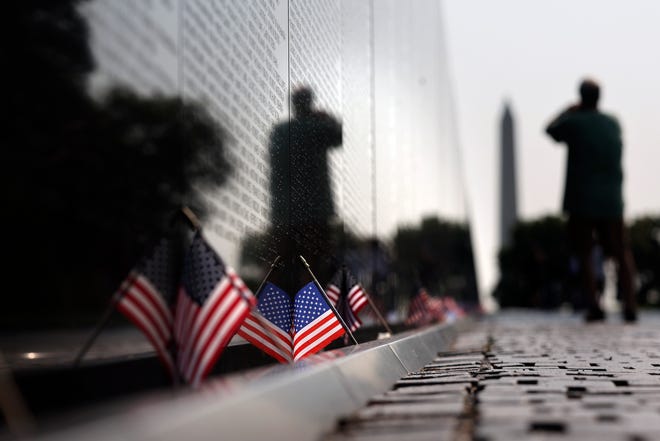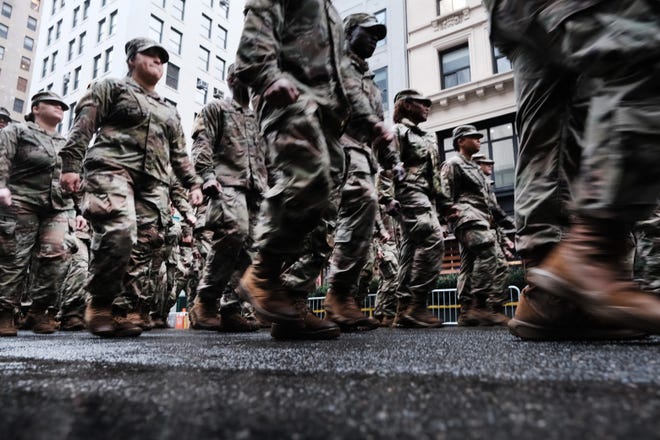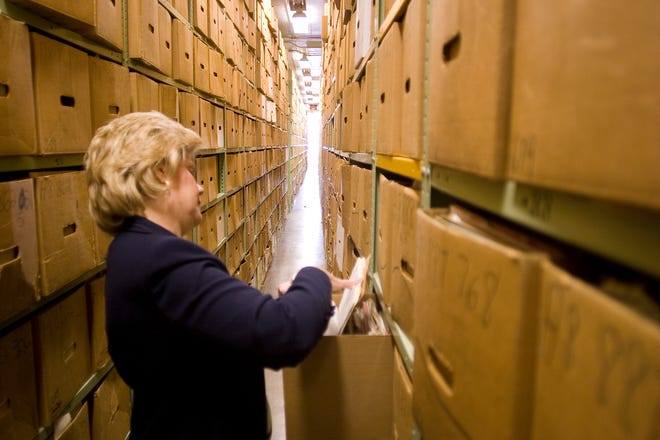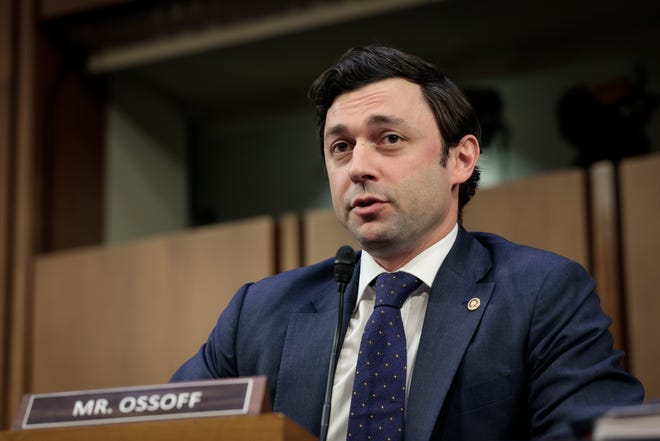
Veterans are waiting months to get copies of military service records that prove when they served so they can prove their eligibility for pension, mortgages, and other compensation.
The backlog for documents like the DD214 started during the height of the COVID-19 pandemic when the National Archives and Records Administration switched to remote work, and those workers could not access veterans records because they are paper-based.
The backlog peaked at 603,000 requests in March 2022. By July, the backlog had fallen to 515,000, according to then-Rep. Fred Keller, R-Pa., who spoke on the House floor about the issue that month. The National Archives declined to comment on what the current backlog is.
Congress passed a law in December giving the National Archives $60 million to fix the backlog. The issue is likely to come up at Tuesday’s confirmation hearing for Colleen Shogan, President Joe Biden’s nominee to be the Archivist of the United States.
Here’s what we know about the backlog:
Confirmation delay:With National Archives under fire, senators show little urgency to confirm Biden’s pick to lead agency
Hearing scheduled:Senate committee schedules hearing for National Archivist nominee Colleen Shogan

What is a DD214? How long is the wait for one?
The DD214 is the military’s standardized “Certificate of Release or Discharge from Active Duty,” an official government document that confirms a person’s military service to anyone looking for proof.
Prior to the COVID-19 pandemic, it was uncommon for veterans to wait as long as three weeks for their DD214, according to Richard Rudnick, who has been answering veterans’ phone calls for 16 years at the nonprofit National Veterans Foundation.
“COVID basically cut it back to where they were like nine months behind at one point in late 2020,” Rudnick said. “It’s been steadily downward trending. Last time I checked personally, they were saying a month and a half, two months for a DD214.”
What veterans are waiting for their DD214?

The National Archives backlog mostly affects older veterans, who served in operations such as the Vietnam War, Rudnick said. Veterans who most recently served get their records through the Pentagon, he said.
Additionally, the National Archives expedites requests for those who fall into three emergency categories – homeless veterans, veterans seeking medical treatment, and loved ones seeking to bury a veteran.
What is a DD214? Military document at National Archives needed for pensions, mortgages, honors
Older veterans and their families may find themselves waiting on the National Archives backlog if they fall into the following situations:
- They’re applying for military pension benefits for the first time.
- Federal workers trying to confirm their years of service to get their government pensions.
- People who are already getting medical treatment but are applying for compensation for exposure to things like burn pits or agent orange.
- People seeking to get a mortgage through the Department of Veterans Affairs.
- A veteran trying to gain membership in a group like the Veterans of Foreign Wars.
- Someone tracking down a deceased loved one’s service record for a dedication.
Pence, Biden, Trump revelations:Archives asks ex-presidents to check for classified documents
Classified documents in cars and sheds::There’s a sloppy system beyond Trump, Pence, Biden
What has Congress done to fix the backlog of veterans records?

Congress passed the Access for Veterans to Records Act in December as part of a sweeping bill that funds the Department of Defense, and Biden signed it into law.
Among the law’s provisions:
- The National Archives gets $60 million to fix the backlog, including addressing cybersecurity issues and digital preservation.
- The Archivist of the United States must ensure there is sufficient staffing to respond to 90% of records requests within 20 days or less.
- An internal watchdog at the National Archives will regularly report on the agency’s progress for two years.
Keller, from Pennsylvania, said the bipartisan law came after two years of pressure from Republicans in the House who opened an investigation into the veterans records backlog and introduced a bill to force the National Archives staff to go back to work in person.
When she introduced the bill on the House floor in July, Rep. Carolyn Maloney, D-N.Y., said: “Veterans and their families need these records to access critical services, including housing and healthcare.”
Biden’s Archives nominee likely to be asked about backlog at confirmation hearing Tuesday

Shogan, Biden’s nominee to be National Archivist, fielded questions about the backlog during a September confirmation hearing before the Senate Homeland Security and Governmental Affairs Committee – and could be grilled on it this week.
In September, Sen. Jon Ossoff, D-Ga., said his constituents are “deeply frustrated by the interminable delays accessing their military records.” He said the problem has made Georgia veterans “skeptical after years of dealing with this that there can be a change. But there must be a change. Veterans deserve timely access to their records.”
Later that month, then-Sen. Rob Portman, R-Ohio, said: “I know from personal experience how arduous that process can be. Both my father and grandfather were in the infantry in World War I and II, and I’ve gone through that process of requesting their military records, and it does take too long.”
Story:Vietnam vet traces war diary author after amazing sleuthwork. Now he’ll visit the family
Valentine’s Day:A Vietnam veteran is making sure others who served aren’t forgotten this year






